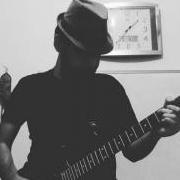Leaderboard
Popular Content
Showing content with the highest reputation on 04/25/2018 in all areas
-
Hi all, So, I've been away from this site for a few years - long enough that I find it has changed and my profile is completely empty! It's time to change that. In February, I had the opportunity to perform a recital of my own works, this trio among them. My colleagues and I decided afterwards that it would be worth the trouble to do a house recording of it. This is the result. My personal musical preferences lie squarely in the conservative German branch of the 19th century, and I've always believed that a composer should write the sort of music he or she likes to hear. That's what you can expect from this trio with respect to form, harmony, rhythm, and so forth. It's in four movements. The first movement is a traditional sonata-allegro with slow introduction. The second movement is a scherzo and trio. The third is a theme and variations, based on a melody I wrote when I was 13 or 14 (side note - NEVER throw away the ideas you compose when you're young!) The fourth movement is rondo-like arch form. I hope you enjoy listening to it as much as we enjoyed performing it! I have decided against posting the score. I hate to have to take this stance, but as an essentially unknown composer, I am deeply reluctant to post my scores to an internet site that is open to the world when I know colleagues who have been victimized by thieves stealing their works and claiming them as their own. Even with a legally copyrighted work, it is stressful, time-consuming, and expensive to take these people to court. I apologize to those who would have liked to see it.1 point
-
I started this new one-man post-rock project, and this is the first single track I composed for this project. It's available to download from bandcamp : https://mangrovelakeswans.bandcamp.com/track/far-away-in-the-dark1 point
-
1 point
-
So I started writing a third symphony, with the same instrumentation as the previous two. I remembered that I have a lot of unused material that I wrote years ago. Some of it is probably 5 years old or older at this point. I took two things that I wrote, and put them together to create what is intended to be the intro to Movement I. The originals, "composition" and "Symphony," are included below for reference (I imported the original MIDIs, and Musescore messed up the triplets). I took them and tried to improve upon them, including taking them out of the full orchestra zone and condensing them into the chamber orchestration. I wasn't comfortable with the full orchestra back then and I certainly am not now. Overall, the only thing I can say so far about it is that it is very repetitive. I guess that's just part of my style.1 point
-
Thanks Gustav Johnson, Ampnoe, and pateceramics for your reviews and criticisms. I appreciate them. Gustav Johnson, it is true I haven't been composing as frequently of late. Great to hear that you always enjoy hearing my work! pateceramics, actually if you look closely there are some subtle variations between the four other parts. But even then, there are times when the character of a piece would requires less counterpoint and/or harmony and a more monophonic texture. That is why I do not worry about the way every piece develops. The pieces have their character; and as a composer, I have my character (including strengths and limitations, inclinations). It is about negotiating between those two, about balancing the character of the given piece with the character of the composer. Art can never be entirely objective, if at all; therefore it should never be judged by objective standards. Thanks Ampnoe for your positive words and encouragement!1 point
-
@pianist_1981 Thank you for your statement with regard to variety in composing styles. I couldn’t agree more.1 point
-
Thanks for taking the time to listen, Willibald - I'm glad you enjoyed it. Regarding the composer competition, I certainly agree with you. I've seldom found much enjoyment in listening to mid to late 20th-century art music. The peculiar thing is that the general market is not actually especially interested in academic music. There's interest among performers and composers, but the vast majority of concert-goers would prefer listening to a Brahms, Bach, or Mozart over a Boulez, Babbitt, or Cage, for instance. Modern composers are often quite removed from this market, partly because it is incredibly difficult to gain a foothold against the established repertoire, and partly because there simply isn't enough demand for classical music to allow most composers to make a living of it. Thus, they pursue it as a hobby in the way that Ives did, while earning their living doing something else. I think what's really at play here is that most post-secondary composition instructors of the past couple of generations grew up in the academic climate of the 50s through 70s - an era that was marked by a striking intolerance for utilizing stylistic elements from past eras in an effort to advance music in the same way that all other fields were advancing - and they push their students to continue this tradition. Most composers are intelligent people, and they pride themselves on this intelligence. They do not want to be regarded as unoriginal, nor as individuals incapable of handling the complexities of highly advanced modern music. Those who did dare write more traditional music (Barber, for instance) often received scathing criticism from the proponents of the new style, and students who were not lucky enough to have an open-minded professor at school were likewise scolded for their lack of originality. This peer pressure can be extremely persuasive, and in my opinion is the primary reason that avant garde styles came to dominate the art music world. Unfortunately, this played a significant role in killing off demand for serious art music (which was seen as necessary by many of the chief proponents of the avant garde movement). The effects are still very much present to this day. A few years ago when I was checking in here more regularly, I remember seeing numerous examples of composers in this forum posting nicely written music in traditional styles who were admonished that they should be "finding a fresh, original voice" rather than imitating styles of the past. Invariably, these detractors were modernists, and ironically, their music was seldom any more creative or original than the composers they scorned - they were just imitating a somewhat more recent style of music. The idea they persisted in advancing - that one MUST employ the tools of the modern era in order for his or her music to be relevant to the modern era - always struck me as deeply flawed. If older musical styles are no longer relevant, why do we still listen to and adore them? Why are they still, to this day, more popular among the concert-going public than modern art music styles? The argument only makes sense if one feels that the primary purpose of music is to advance and evolve. All that said, it also makes no sense to me that anyone would claim the world would be better off had avant garde music never been explored. There are some musicians who genuinely believe that this is the most beautiful and expressive music in the world, and they should not be scorned for it. There are also many who find a real sense of fascination and intellectual fulfillment in the process of writing in serialist, aleatoric, and other avant garde styles. I actually think that for many of them, that is of much more importance and relevance than the resulting sound. And there can be no denying that such music is a greater communicator of certain emotions than the tonal system could be. I suppose, in a nutshell, that I wish people would stop trying to pressure each other into writing in their own preferred style. Write what you enjoy - not what you're told you should write. Unless, of course, you make a living writing music for other people, in which case what you write should probably be something they want to hear. :-)1 point
-
I fully understand your stance towards publishing scores. This is really a high-quality work and could easily tempt others to pass them as their own. (I worry far less for my own forays into music as the worst that could happen is that some hapless student tries to hand them in as his own work at school and gets the deserved bad grade for supposedly writing such a sloppy piece.) I really enjoyed listening to your trio; in my purely subjective opinion, it could need a tad more variety -- probably without changing anything except dynamics and tempo markings in the score, just by modelling the contrasts more like Harnoncourt would have done. All in all, this is close to half an hour of music, so you need to keep people engaged. Of course, this is also a matter of taste. The scherzo is really fine, energetic and full of the sort of contrast I mean; the rondo is also very effective. I look forward to other compositions from you! -- The other day, I listened to the winners of a competition for string quartet, and I wonder if those composers really write music they themselves enjoy to listen to. The market for modern "classical" music is stylistically very focused on a certain type of academic late 20th-century compositions (except for film music, which is much more colourful and varied) that does not work very well for long pieces. It was a very tiresome experience.1 point
-
Hi All, I am looking for a few testers who will help me find issues with Music Jotter. For those of you who don't know, Music Jotter is a music notation software created by Young Composers. Testing is easy. Just use the software like you would any software! And as issues arise, just let me know so I can address them right away. Issues may include bugs, or user interface problems (in case something doesn't make sense or is not clear) Please note that this product is for Windows only. If anyone here is interested, I am eagerly awaiting your responses! Thanks!1 point
-
Ok, you have had me all over Adam Neeley's youtube page all day long. His black midi of jessie j's domino is insane and so much work. I love all of it.1 point
-
I am a fan of a ton of different styles of music. I have gone through a Zedd phase. The one called Find You is perfect in my opinion. I love it even though it isn't very "sophisticated" or "proper music. I also really love progressive indie jazz. I love the bizarre indie electronic stuff too. So, this being a combination of all of that is pretty cool.1 point



